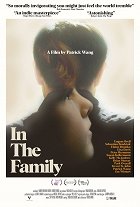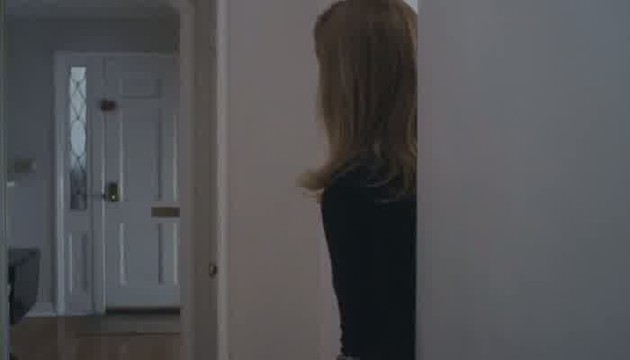Réžia:
Patrick WangScenár:
Patrick WangKamera:
Frank BarreraHudba:
Chip TaylorHrajú:
Sebastian Banes, Patrick Wang, Juliette Angelo, Peter Hermann, Park Overall, Chip Taylor, Eisa Davis, Trevor St. John, Jake Mosser, Susan Kellermann (viac)Diskusia
Ohlas z Havajského mezinárodního filmového festivalu (2011):
One feature to keep an eye on, however, is Patrick Wang's self-funded-and-distributed In the Family, which made its world premiere in Hawaii after being rejected by over 30 other festivals. A remarkable cinematic experience, the film addresses many powerful issues — "two dad" families, gay custody rights, love and loss, interracial relationships, and family fissures — yet presents them with an aesthetic as becalmed and gentle as its protagonist's tender Southern drawl. (Our hero, by the way, is gay, Southern, and Asian American, a fact the film presents with refreshing nonchalance, and that its characters accept with a similarly refreshing lack of surprise). Family's opening scene sets the mood and the pace: a fade from black into a family dining room, with two men and their young son getting ready for the day, just talking, sitting around, and existing during a scene that lasts over five minutes. "People always like the crazy stories," says a character later on, "but it's the doing-nothing-around-the-house moments that I remember best." Over two-and-a-half-hours long, comprised of several shots that last nearly ten minutes or more (not out of artistic show-boating, but to capture the natural rhythms of how people speak and listen to one another), In the Family borrows more from the observational qualities of a Hou Hsiao-hsien or a Pedro Costa than any American indie; its attention to domestic spaces and how we live and move within them, in fact, nearly makes it a Tennessean heir to the films of Yasujiro Ozu. While not part of the awards competition in Hawaii, In the Family still takes the prize as the festival's strongest film, and the most surprising and astounding DIY American narrative of the year. Kudos to the festival for recognizing its worth.
---
Další (nadšené) kritiky.
---
Úryvky z rozhovoru na Tiny Mix Tapes:
There are also some moments wherein you let the ambient sound cover the dialogue, or we can't hear what the characters are saying. You've talked about having confidence in the capabilities of an audience. It feels very much like real life, where you don't always get to hear everything. It didn't feel any less intimate. Is this something you look for in a film, or you thought it worked for this particular story, or it more generally mirrors your impression of how the real world is?
That's a big question. It is how I see life. We don't get access to everything, and that's what keeps it interesting. You're right in that a lot of people come in and they don't recognize it as film language at first, but they recognize it as life. I rarely fall asleep in life, just watching something, but I fall asleep at a lot of movies. I think it's because they do all of the work for you. I think people like participating in movies, they like figuring things out, and they have the ability to. They understand what certain things feel like. And so a lot of times you can just set up something, set up a context of some sort, and [the audience] can complete it. And it's much more satisfying for them to complete it. It becomes a very personal thing when they complete it. I tried to do a lot of that early on, kind of have some distance where you're not hearing one person, or you're not hearing an entire conversation, so that people would know it was OK.
...
How did your economics background play into your decision to take on distribution of your film, to have the confidence to cultivate an audience?
The point that I found a little shocking, having a business background, is all the things that get done in the name of business. And to me these are things that are not being done in the name of business as I know it, they're being done in the name of being a cog in this machine that's running down, as far as I can see. To me a business as I know it is something vibrant, something creative. It doesn't minimize the risk, it takes the right amount of risk. When you have risk minimization, that's when you have the crisis we had a number of years ago, that's what zero risk looks like. And in some ways that's what it looks like in the film industry. There needs to be a discussion about responsible risks, and these risks that build something larger than the thing right in front of you. And I think a big part of that equation is the audience. A lot of people talk about the audience, I would expect that comes up probably in every meeting and every discussion about film and distribution. And I don't know how many distributors actually sit with an audience, how many distributors actually understand the differences of audience across place. Or how many directors! I've sat through the film somewhere between one hundred seventy and one hundred eighty times, in the theater... And you learn that audiences are not the very limited things that people seem to think they are. They are capable of a lot, they just have not had many opportunities to prove it. You can't put bad and terrible in front of people and say, "see? They're not capable of good." Someone asked me at some point, did distributors test-screen the film, and I wish they did! Because they would have seen that it tests as high as you could hope for. There are many people who love the movie, and they're ready to change it. And I would love to test it in its original form, and in its altered form.
You mean change it through the editing?
Yeah, through editing. I think people don't realize the real value and consequences of not giving people what they want. It is actually a force that engages you in a movie. It's surprising, and it's frustrating sometimes, and that is a valid force in the experience of a movie. It keeps you awake... You hear a lot of conversations about attention spans, and among Americans teenagers have the worst reputation, but teenagers have loved this film. I don't know how, but in certain cities we play teenage girls find their way to the film. And they surprise [even] themselves by how they sit through it, how engaged they are. Their lives aren't like that, it's different than their lives, and that can be a really refreshing, therapeutic thing. The other thing is, this particular film deals with loss, and it deals with conflict, that everybody experiences in life, and that I don't think people take the time to deal with completely. Often times we're rushed on, back to our work, back to our lives, back to whatever's next. I think the reason the film touches a lot of people very deeply is because it gives them that space that they've been needing to deal with these very adult emotions that can't be summed up in one sentence, that are complex... We seem to look to harshness, and brokenness, and extremes, for drama, but there's drama in each of our lives, a lot of it unresolved. It would be nice to have more opportunities to [address] that.
---
Úryvek z rozhovou na Hammer to Nail:
H2N: When we were first emailing, we discussed the upcoming Edward Yang retrospective and you said that you were looking forward to catching up with his work because you hadn't seen any of his films. This made me wonder about your movie watching history. Would you consider yourself a cinephile?
PW: I am very new to movies. I feel like if you watch a single, very accomplished movie, you can learn so much from it. So I feel like a single movie can be a huge education. There is some European cinema I really love. I love Tony Richardson, who is also from a theater background. And there is certain Bergman that I really like. I do really like Cassavetes. But there are all these names that have come up that I don't know. And I'm looking forward to finding out. There are certain things about filmmaking that I didn't know going in that I'm glad I didn't know. Certain things, like we did a lot of long takes with kids, and apparently you're not supposed to do that!
H2N: Maybe I'm jumping to a conclusion here, but based on what you've just said, I'm now wondering if your long-take approach was actually more directly inspired by your theatrical background as opposed to cinema. Would it be fair to say that?
PW: I think it was some sense of humility as to the tools you have. This idea that you can have multiple shots of the same scene, and that you can cut. I think that I didn't take them for granted. And so I started from just a humble spot of saying, "Where do I really need this? What does it do for me?" And, "Can I get away without it?" So that when you use it, and the rhythm you use it at, is meaningful every time you do employ this tool. I think it comes more from kind of a minimalist perspective of trying to get your head around all these different things you can do and all the different strains that are running through the film, either in design or content. So it felt like I had to simplify some things because of how complex other things were. This is one of those things I learned after the fact: I was reading This Is Orson Welles, where he talked both about you have to feel like you're discovering everything for the first time, whether or not it's true, and then the other thing is that when you know where to put the camera, the scene just reveals itself.

